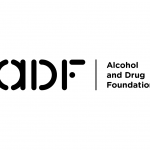

As told to Naomi Foxall (names have been changed). The feature image used is a stock photo.
When Sophie* asked her children, then five and three years old, what her favourite drinks were as part of a game they were playing, she wasn’t expecting their answers to surprise her as much as they did.
“We would play this game where we asked each other questions about our favourite things,” she recalls. “I asked the kids what mummy’s favourite drinks were and they both, straight away, said WINE, CIDER. It was the very first thing that came to their mind.”
While she laughed it off at the time, Sophie recalls thinking that it wasn’t the way she wanted her kids to think about her.
“It wasn’t a huge deal,” she says, “but I did feel a bit of shame.”
Like many parents, Sophie had found herself reaching for a drink as part of her ‘parenting survival kit’. “I’d often pour myself a wine around 5pm to manage the end-of-day meltdowns and witching hour,” recalls Sophie. “I never thought much of it and never considered that my kids would actually notice what I was doing, but they did.”
In households all around Australia, opening a bottle of something in the evening is a common occurrence. During the COVID-19 lockdown, many parents found themselves having a drink at night to take the edge off #isolife.
While alcohol as a coping mechanism is nothing new, what has changed in COVID-19 times is that after-work drinks that once took place in the pub may now be on Zoom with the kids playing in the background. Instead of the wine bar you’d usually visit, your monthly catch-up with friends will take place on the couch over FaceTime while the kids watch a movie sitting next to you. It’s captured so cleverly in the video below:


